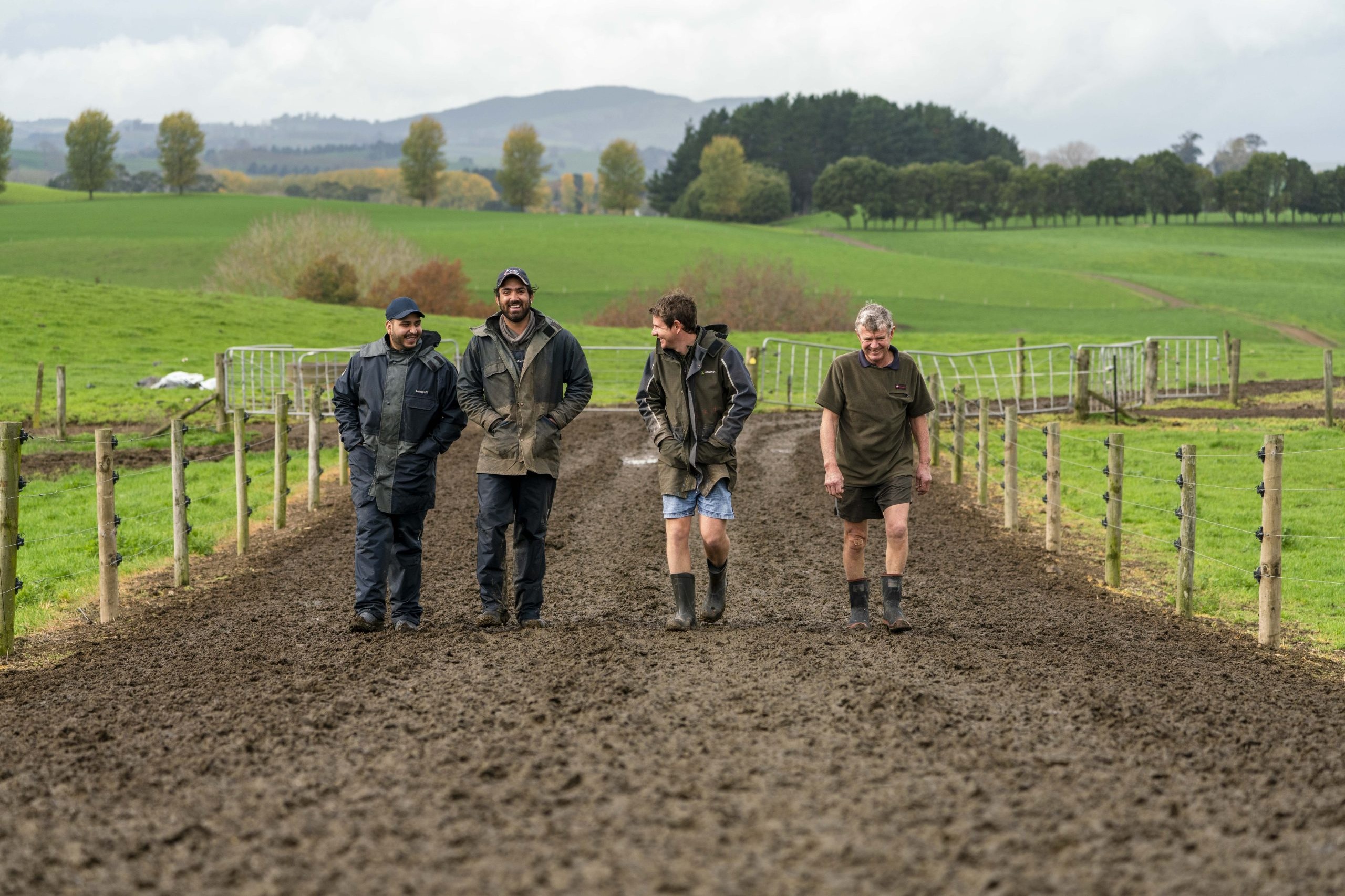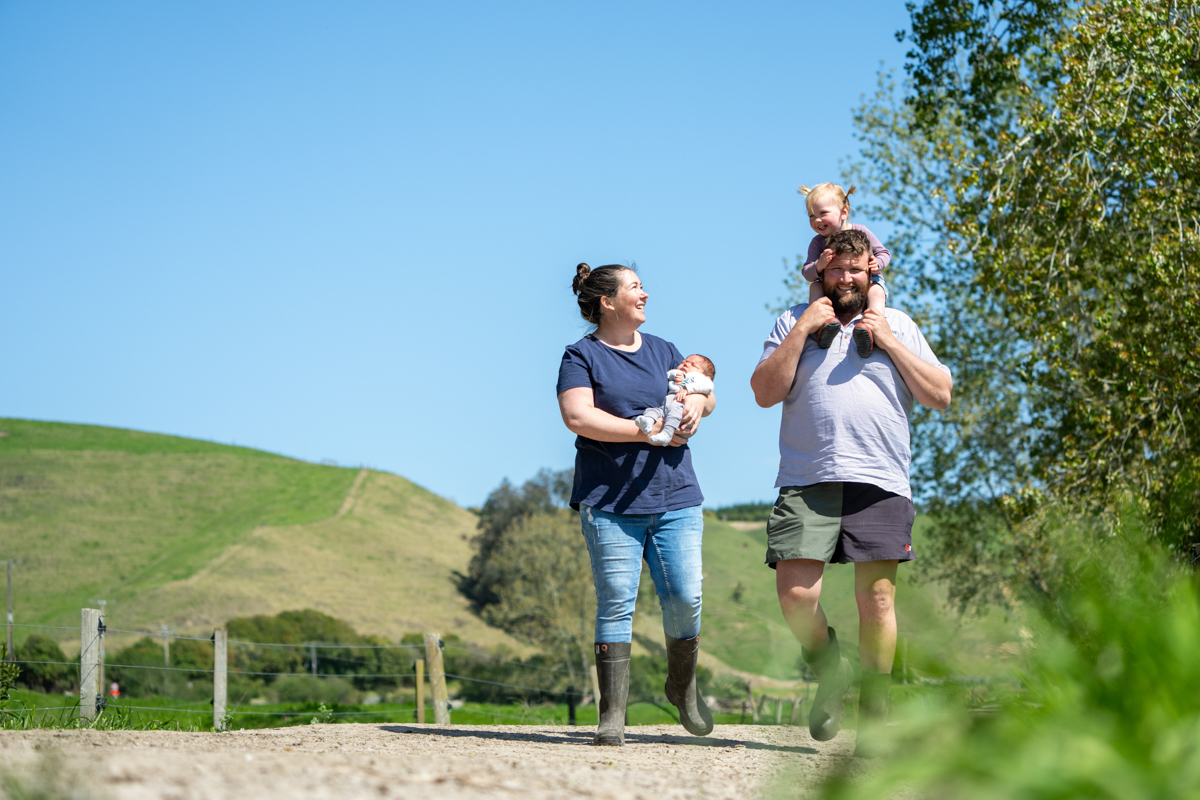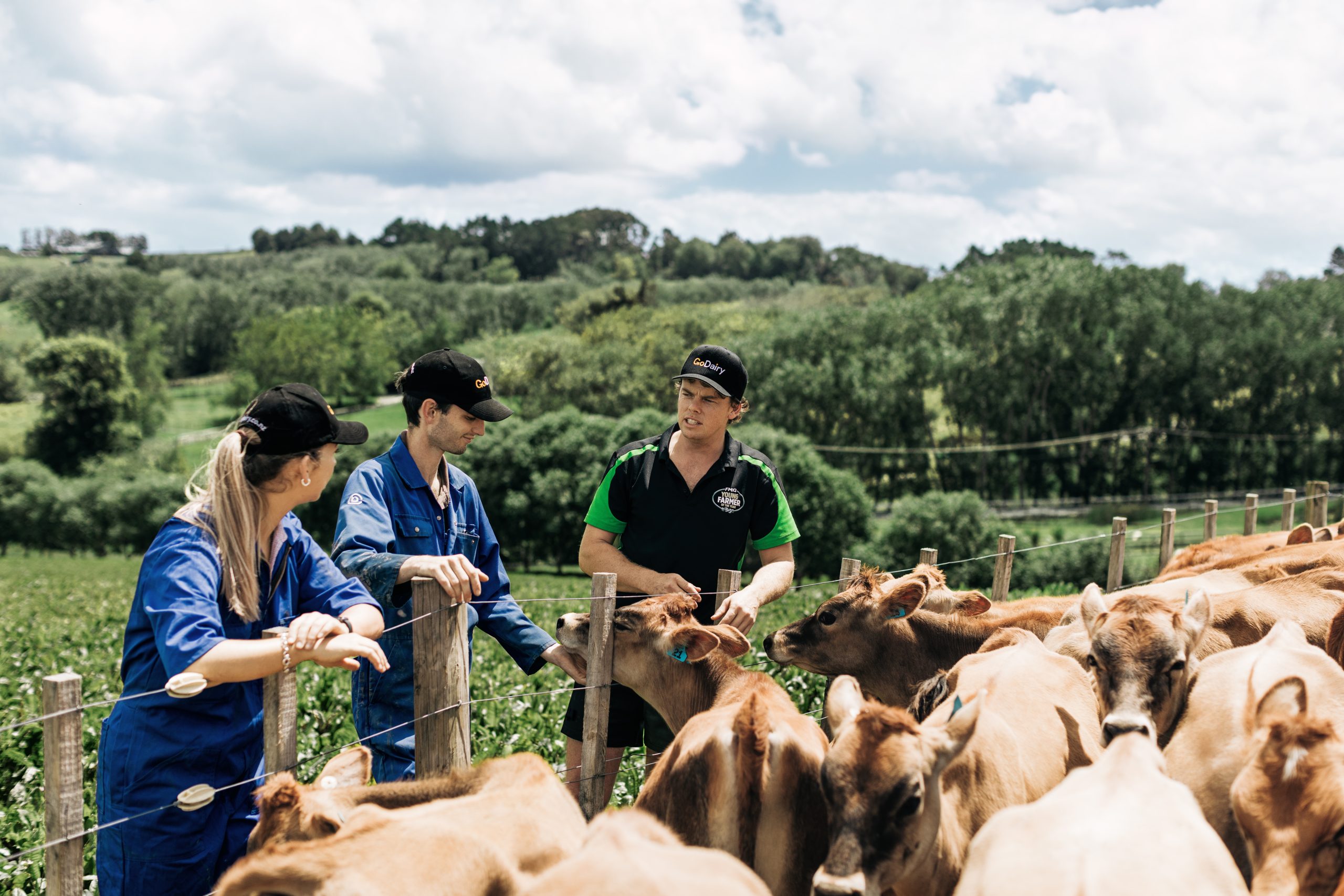Rebecca Harper and Cheyenne Nicholson caught up with some young farmers who have featured in Young Country to see how they are faring.
Ash and Shonelle Townsend
What’s changed since we last caught up with you?
We are in the process of putting our 55-hectare block at Maitland on the market and are looking at other land opportunities. Maitland has been a good stepping stone but due to distance and our focus on better time management with a young family we would like the expand our farming operation closer to home.
We have also become quite interested in the potential for regenerative farming and are part of a RMPP group. We are having good success with ram genetics, Romney Texel cross ewes.
What have you learned?
Nothing lasts forever. Action is better than reaction and don’t be afraid of change.
The importance of a good team like bankers, accountants, lawyers etc. people that work with you to achieve your goals.
Don’t be afraid of being open with those around you (like other farmers). We often feel the day-to-day challenges are just ours but it’s amazing how many others face similar problems.
What are your goals for 2019?
Increase land size closer to home (and cut back the building so be more farming focused).
Shonelle’s still working on that new house.
Increase ewe weight for a better scanning
Fence and plant critical source areas (creeks).
Tail 160% in ewes and 120% in hoggets.
What are the challenges you see coming and what’s your plan of attack to overcome them?
Most challenges I try and see as opportunities to make life easier for myself – eg: the focus on environmental issues – so planting and fencing creeks will give me more paddocks that are safer to lamb in and create better shelter and better water quality.
Another challenge will be in improving our soil health and water holding capacity – we still have a lot to learn here but it’s a direction we are wanting to head with the help of farmer focus groups (RMPP) and other farmers further down this track than we are.
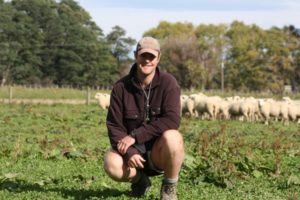
Jono Todd
What has changed since we last caught up?
Well not a whole lot has changed, still on the look-out for a stock manager role as I have taken a break from sheep and beef farming for the last 15 months. Doing some seasonal work in Australia (harvest and seeding seasons) has funded my OE and I’ve seen a lot of Europe and the United Kingdom throughout 2018. Being back home in NZ is great and I can’t wait for the right job to pop up.
What have you learned?
The biggest thing I’ve learnt is life isn’t all about the 9 to 5, or in agriculture dark till dark. Taking a well-earned break whether it’s four weeks or four months or longer, there is plenty more this world has to offer than working for the sake of paying the bills.
Although a career is important it is also important to live the way you want to and make the most of every opportunity you’re given.
What are your goals for 2019?
My first goal would be to find the right job that is going to benefit my career in all the things I’m passionate about. Which, put simply, is hill country sheep and beef farming. Another goal would be to make an investment in either a home or stock asset to give me some backing into the future.
Challenges for the future and how to attack them?
One of the biggest challenges I see coming would be an industry-wide challenge of continuing to market our product overseas, with so many people changing the way they consume and perceive red meat as a product we have a big job ahead of us to keep our prices where we want them. Beef + Lamb NZ are doing a great job and need farmers’ support to keep the ball rolling.
Another challenge would be the retention of land being used for red meat production. We are seeing a lot of productive land being planted for forestry as prices dictate who can afford the land, the honey industry is also seeing a lot of bush regenerate and cleared land being planted. If we can target markets and make red meat more profitable we may be able to keep for land for NZ red meat farmers.
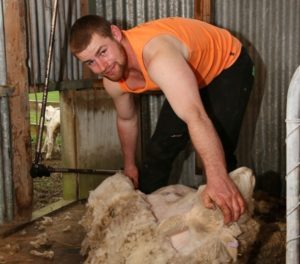
Eugene Pitt
What has changed since we last caught up?
Scale. Back then I had a small crutching crew and was leasing about 60 acres. Now, I’m leasing over 1000 acres and have a couple of shearing crews, so that’s the major change.
What have you learned?
A lot about dealing with people. Learning from my mistakes and carrying on.
What goals do you have and what are the challenges you are expecting this year?
Stock is really expensive this year and I’ve just taken on a lot of land, so getting in on a high capital value is not particularly easy.
My goal is to consolidate my position, in terms of keeping the guys in the shearing crew busy right through the year and also making sure I’m keeping on top of my debt with stock and things. The bank is definitely helping me out, but I need to make sure I keep in control of it.
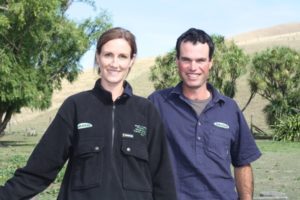
Matt and Claire Smith
What has changed since we last caught up?
We have moved down south to the Hakataramea Valley to manage a 6000-hectare sheep and beef breeding and finishing property, Caberfeidh, for Lone Star Farms. It’s a summer dry climate and is quite a different farming system for us, there’s a big trading component and irrigation too. The property is also tied up with Te Mana omega lamb.
What have you learned?
For us, this was a big step up and one thing I’ve learned about myself is I like being outside my comfort zone and being challenged – that’s when I perform at my best. A great thing I learned from working for Taratahi (at Tautane) was to prioritise, and also to park issues. By that, I mean I learned not to panic if things aren’t quite going right. Take a step back and take a few deep breaths. Things always look different in the morning and nine times out of 10, issues will resolve themselves.
What goals do you have and what are the challenges you are expecting this year?
For us, we have a staff of 10, trying to grow and develop our staff at Caberfeidh and get them to come on the journey too is important. Growing staff personally, that’s a goal for us, and creating an environment where people want to come and work here.
Industry-wise, there’s not enough people out there and staffing going forward will be a huge challenge – especially on a place like this, we need a lot of staff. For the farm, we’ve just finished setting our goals, financial and production-wise, for the next five years, so we will be aiming towards those too.
Other challenges I see are synthetics and alternative proteins starting to have an influence and also the perception of urban people in terms of the environment and farming’s impact on it, particularly water quality. The challenge for us as farmers is to get our point of view across and to show we’re delivering in terms of caring for the environment.
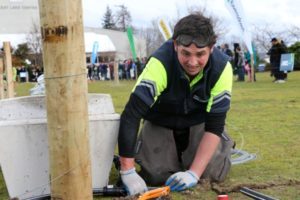
Pete Fitz-Herbert
What has changed since we last caught up?
A lot has changed, less really is more. I mean there is no longer chasing events around the country. I haven’t run or biked in years, I would love to though, but life does move on and now with a partner (Erica) and two boys (Harry and Ridge) under four, life has never been busier.
I’m now too old to be a Young Farmer but am too young to be an old farmer. I was involved with Young Farmer of the Year contest for years on end with competing and organising and have pulled away from all off-farm activities for a couple of years to focus on getting my farm and book work up to scratch.
Fitness is shearing sheep now, it is the best way to give you more money to spend onfarm. I do wish I had learned at 16 instead of in my late 20s – it provides real job satisfaction.
What have you learned?
Farming with family will never be easy.
Look after your body because as you get older you don’t bounce the same.
Don’t ever wait for someone to present an opportunity to you, just go and find it, whether you think you are ready for it or not.
Don’t worry about the weather, the exchange rate, or anything else that you can’t influence outside the farm gate, but do plan for all of it.
What are your goals for this year and what challenges do you see for the coming year?
I now lease two hill country blocks, about 530 hectares of sheep and beef country. This is all the challenge I need, trying to make the most of the year that is presenting at the moment is the goal, prices are great, grass is great, it is shaping up like a one-in-20 year combination for sheep farming.
The off-farm goals are just around getting off-farm, or to run around with the boys in the evenings. It’s that simple, you always think you will get more time later in life, but it is about just making more time now.
Although, I am trying to build a world-class backyard cricket pitch, in the front paddock, and hoping the boys will grow to love a good game of BYC.
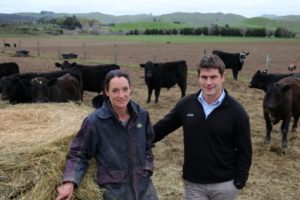
Katie and Sully Alsop
What has changed since we last caught up?
We have two beautiful children now, Isabel who is 2 and Sam who is 9 months, which has definitely changed the dynamics of our operation.
Sully has taken long-term leave from his job at BakerAg and is now running the farms as of April 2018 and I am just getting back into a few days a week on the farm. Our partnership purchased another 400-hectare property in August 2016 and 80ha in 2017.
What have you learned?
Economy of scale is good, but there are extra logistics with four different blocks.
What are your goals for this year and what challenges do you see for the coming year?
Short term goal is to get a work/life balance and refine our stock policies. Long-term goal has not changed – to get ourselves in the position at the end of our 12-year partnership that we would have the equity to purchase or retain land within the partnership that would support us as a family and set our kids up with the opportunity to go farming in the future if they choose. At this stage we see our partnership with Jack and Toni going well beyond the 12 years, though.
In terms of challenges, we have some major capital development planned over the next few months, which is very exciting but also very time-consuming and a lot to organise. We are used to dry summers, so the dry doesn’t scare us but it’s just making sure attention to detail around management of capital stock leading into tupping and through tupping doesn’t slip.


